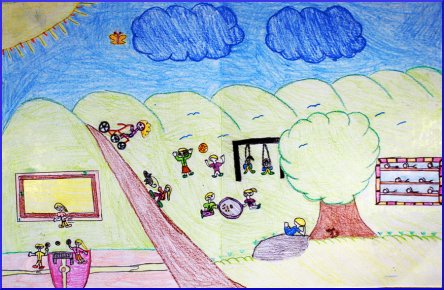
Holiday note: Remember, Halloween doesn’t have to be a caloric disaster. All parents are invited to revisit the Childhood Obesity News posts dated October 4, October 7, and October 8 for support and validation, and maybe even some fresh ideas.
Happy Halloween!
Yesterday, there was some talk of Zamzee, a movement recording device that incentivizes physical activity. The company’s internal trials found that in the first three months, kids were stimulated to get about 30% more exercise than their personal norm. The game aspect is in accumulating points to win real, tangible rewards like electronic devices and gift cards.
But where do these rewards originate? Some are donated by nonprofit organizations or Zamzee itself, by sponsoring “activity challenges.” Mainly, rewards come from an account in which the child’s parents have placed funds by buying “virtual currency.” (How many families can afford this?) The Zamz, or reward points, build up, and the child wins the purchasing power to buy some desired object.
A true curmudgeon might call it a complicated system for disguising the fact that the parents are bribing the kids to be active. The game and the company bureaucracy would then be seen as middlemen whose presence buffers the starkness of the transaction. We don’t know anyone that curmudgeonly.
Fiction detour
A screenwriter might start making notes for the story of a young girl who wants a personal soda fountain more than anything, but her parents nix the idea. She finds out about this awesome rewards program, and sets out to make herself as fat as possible. Then, she plans to convince her parents to enroll in the program. While regaining her figure, she will earn points at the same time, and cash them in for a personal soda fountain. But… her dad loses his job, and all of a sudden there is no money for frills like fitness programs.
This could be a drama or a comedy, or even a dramedy, but few parents would want to see it take place in their home. Relax, it’s just a story. In real life, if parents worried about dangerously obese children can afford it, what’s not to like? If there is a chance to help a child, parents are often willing to take that chance, even if success is not guaranteed. Zamzee spokesperson Richard Tate is quoted as saying:
The real question for us is whether or not this approach can be effective where all others have failed. Sedentary behavior and obesity are entrenched social problems that we haven’t found a solution to. From our point of view, bringing in all possible tools and approaches seems important.
Once again we are reminded that everybody is different, and some thrive on recovery programs that have no effect on others, and there is no universal panacea for any facet of the human condition. But getting back to Zamzee, SF Gate writer James Temple asked some psychological and philosophical questions about the system:
If the user is a kid already inclined to play basketball, baseball, soccer and football for the intrinsic fun and challenge, is there a risk of replacing that innate desire with an expectation that physical activity should be immediately rewarded? And if so, how does that affect health and fitness motivations into their late teens and adulthood?
Good questions. Your responses and feedback are welcome!
Source: “Jury out on Zamzee, other forms of ‘gamification’,” SFGate.com, 02/26/12
Image by Korean Resource Center.

 FAQs and Media Requests:
FAQs and Media Requests: 











